LSE Nobel Prize winners

A total of 21 LSE alumni or staff members have been awarded Nobel Prizes, between 1925 and 2025. Two for Literature, three for Peace and 16 for Economic Sciences.
2025: Philippe Aghion
Nobel Prize in Economic Sciences (jointly)
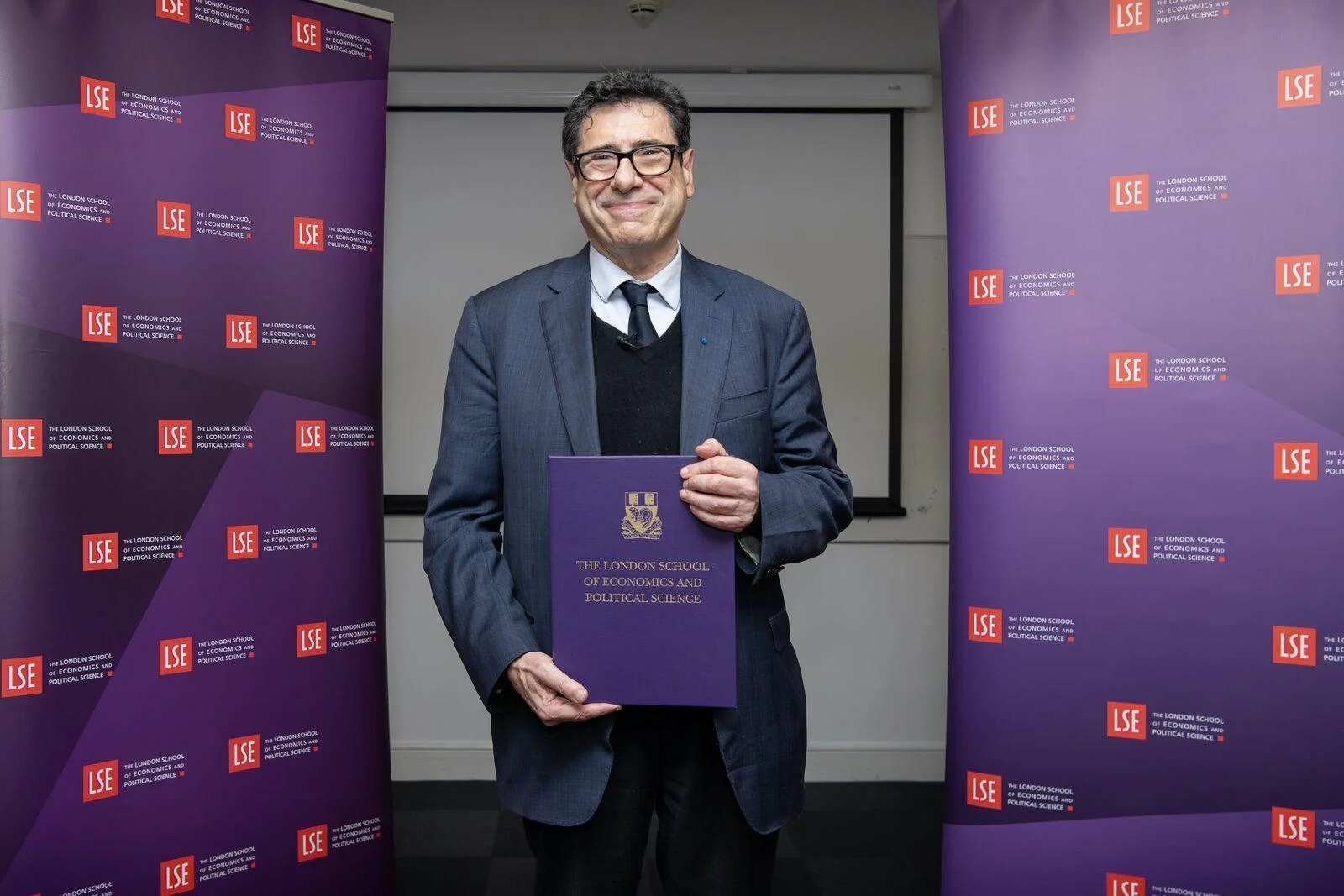
Professor Aghion from the Department of Economics and the Centre for Economic Performance at LSE was awarded the prize jointly with Joel Mokyr from Northwestern University and Peter Howitt from Brown University “for having explained innovation-driven economic growth”.
With Peter Howitt, he studied the mechanisms behind sustained growth. In an article from 1992, they constructed a mathematical model for what is called creative destruction: when a new and better product enters the market, the companies selling the older products lose out. The innovation represents something new and is thus creative. However, it is also destructive, as the company whose technology becomes passé is outcompeted.
In March 2020, he shared the BBVA “Frontier of Knowledge Award” with Peter Howitt for “developing an economic growth theory based on the innovation that emerges from the process of creative destruction.”
2024: Daron Acemoglu
Nobel Prize in Economic Sciences (jointly)

Daron Acemoglu received an MSc in mathematical economics and econometrics from LSE in 1990, and a PhD in economics from LSE in 1992. Since 1993, he has held the academic positions of Lecturer at LSE, and Assistant Professor, Pentti Kouri Associate Professor, and Professor of Economics at MIT.
Professor Acemoglu shared the award with Professor Robinson (below) and Professor Simon Johnson (MIT) for their work demonstrating the importance of societal institutions for a country’s prosperity, and why there are such vast differences in prosperity between nations.
2024: James Robinson
Nobel Prize in Economic Sciences (jointly)

James Robinson received a BSc in Economics from LSE in 1982. He then received a master’s degree from the University of Warwick and a PhD from Yale University. Before joining the University of Chicago, he taught at the University of Melbourne, the University of Southern California, the University of California at Berkeley and Harvard University.
An economist and political scientist, he has conducted influential research in the field of political and economic development and the relationships between political power and institutions and prosperity.
2016: Juan Manuel Santos
Nobel Peace Prize
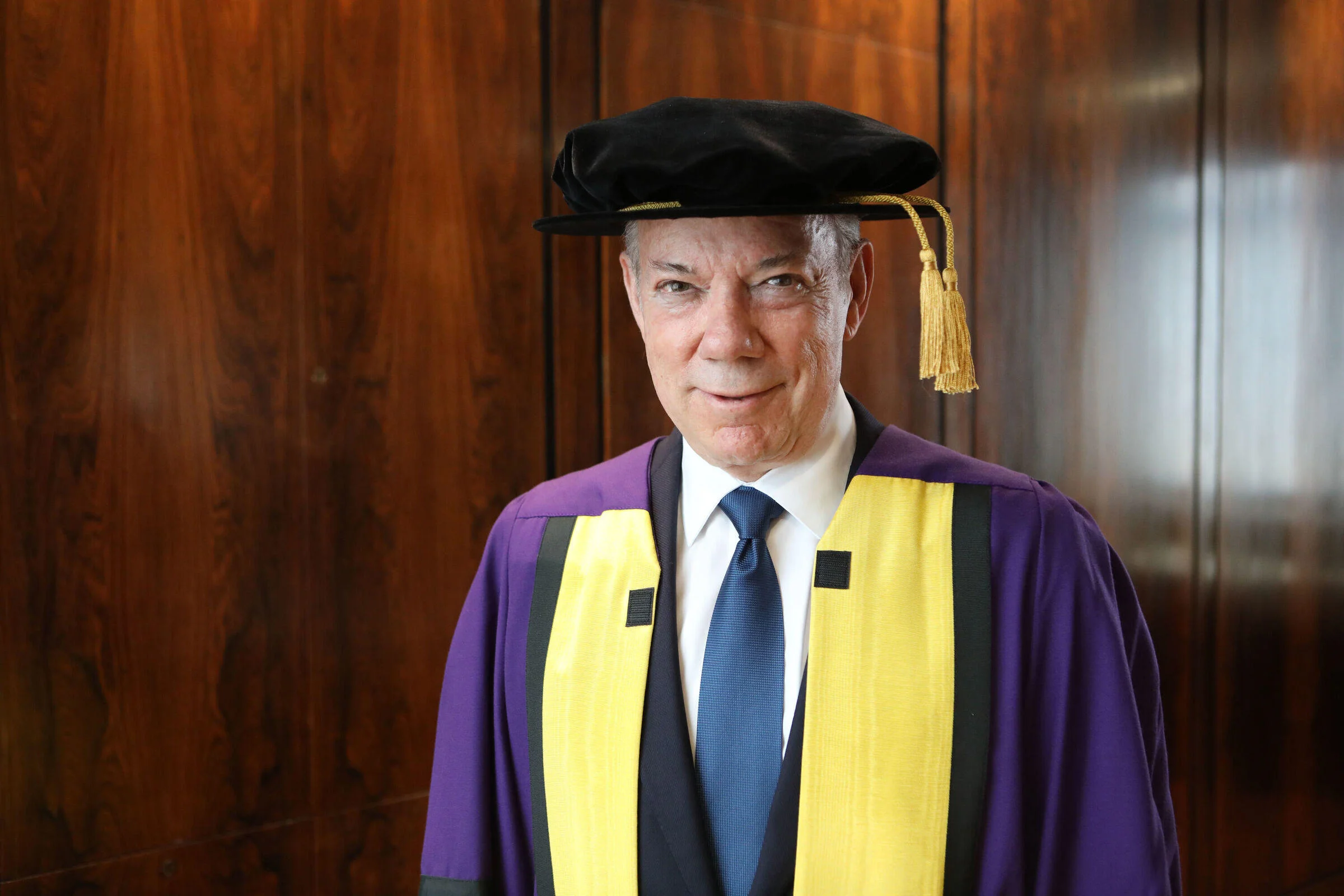
Juan Manuel Santos, President of Colombia, was awarded the Nobel Peace Prize in 2016 “for his resolute efforts to bring the country’s more than 50-year-long civil war to an end”. President Santos initiated the negotiations that culminated in the peace accord between the Colombian government and the FARC guerrillas, although the peace accord was narrowly rejected by a Colombian referendum.
In 1991 President Santos become Colombia’s first Minister of Foreign Trade and in 2005 he co-founded the Social Party of National Unity. He was elected President of Colombia in 2010. After attending the University of Kansas, President Santos studied for a Master of Science in the Department of Economics at LSE in 1975 and a Masters in Public Administration at Harvard Kennedy School.
In 2011 President Santos gave an LSE public lecture, Leading Colombia towards Prosperity for All and in 2016 he returned to deliver The Legacy of Peace.
2016: Oliver Hart
Nobel Prize in Economic Sciences (jointly)

Professor Oliver Hart was awarded the Nobel Memorial Prize in Economic Sciences in 2016 jointly with Bengt Holmström of MIT for their contributions to contract theory.
Their work was described by the prize awarding body as laying “an intellectual foundation for designing policies and institutions in many areas, from bankruptcy legislation to political constitutions”. Professor Oliver Hart is Visiting Centennial Professor in the Department of Economics at LSE.
Professor Hart studied at Cambridge and Warwick Universities before completing a PhD at Princeton University. He was appointed Andrew E Furer Professor of Economics at Harvard University in 1997.
He was a professor at LSE from 1982 to 1985, has been the BP Visiting Chair in the Economics Department since 1991, and in 2007 gave the inaugural Coase Lecture, in honour of another Nobel Prize winner, Ronald Coase.
2010: Christopher Pissarides
Nobel Prize in Economic Sciences (jointly)
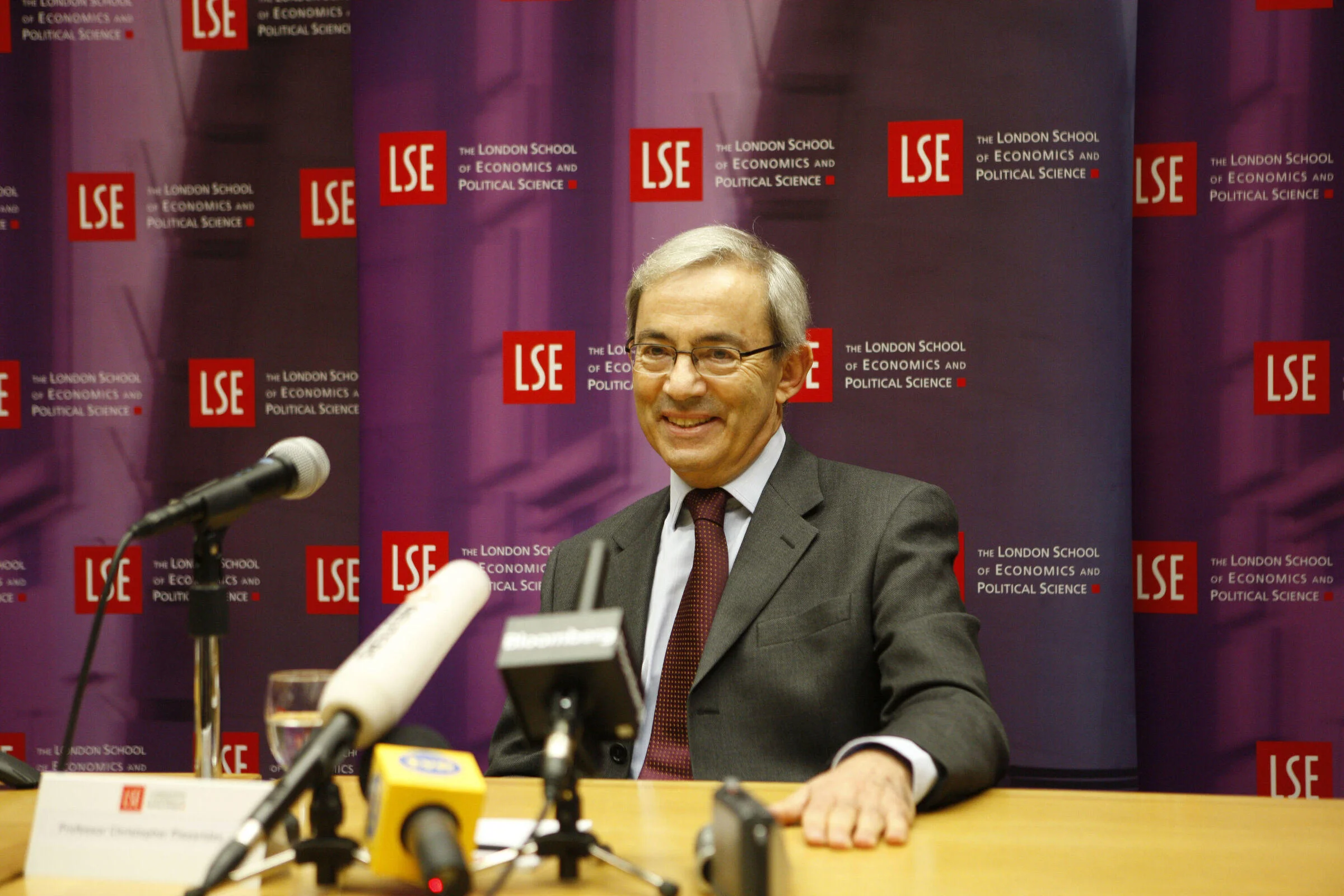
Christopher Pissarides was awarded the Nobel Memorial Prize in Economic Sciences in 2010, jointly with with Peter Diamond from Massachusetts Institute of Technology and Dale Mortensen from Northwestern University.
The prize recognised their work on the economics of unemployment, especially job flows and the effects of being out of work. Announcing the new laureates, the Nobel Committee said the award was for analysis of markets with search frictions.
Professor Pissarides said: "Our research looks at what happens to someone who loses his or her job because of changes in economic environment. We have created a model which allows us to analyse the processes and decisions, such as policy, which affect how long it is before someone finds productive employment again. Until we began the work there was no way of thinking about these issues.
"One of the key things we found is that it is important to make sure that people do not stay unemployed too long so they don't lose their feel for the labour force. The ways of dealing with this need not be expensive training - it could be as simple as providing work experience."
Professor Pissarides is Professor of Economics at LSE and holder of the Norman Sosnow Chair in Economics. He is also a fellow of the Centre for Economic Performance at LSE and of the Centre for Economic Policy Research. He specialises in the economics of unemployment, labour-market theory, labour-market policy and more recently he has written about growth and structural change.
He has written extensively in professional journals and his book Equilibrium Unemployment Theory, now in its second edition, is a standard reference in the economics of unemployment. In 2009 he is serving as Vice President of the European Economic Association, to become President elect in 2010 and President in 2011.
Professor Pissarides was awarded his PhD at LSE in 1973 and has been on the faculty since. He is an elected fellow of the British Academy, the Econometric Society, the European Economic Association and the Society of Labor Economists.
He is also a member of Council of the European Economic Association and the Econometric Society and a former member of Council of the Royal Economic Society. In 2005 he was awarded the IZA Prize in Labor Economics (jointly with Dale Mortensen) for his work on unemployment and in 2008 he received the Republic of Cyprus "Aristeion" for the Arts, Literature and Science.
2008: Paul Krugman
Nobel Prize in Economic Sciences
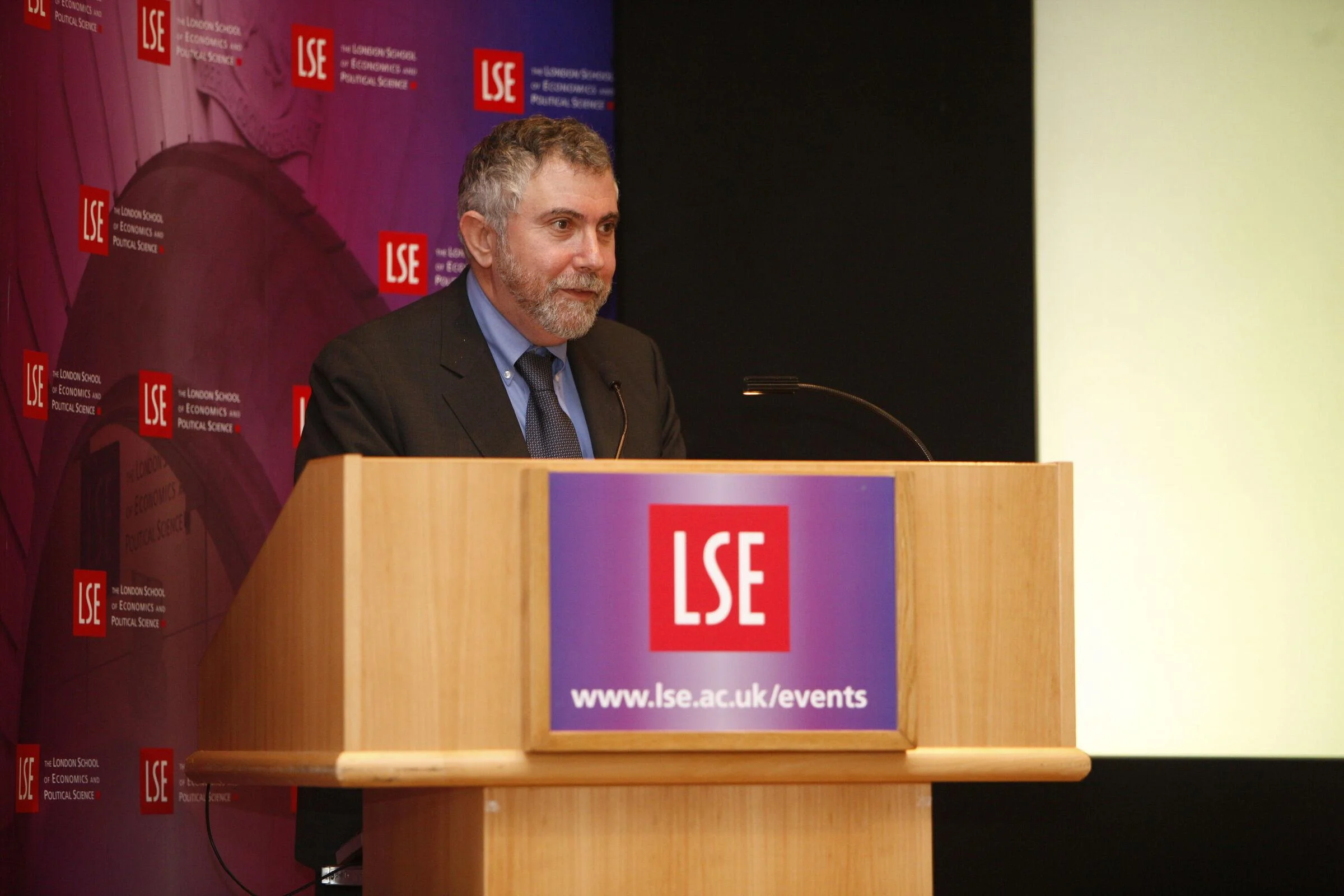
Professor Paul Krugman was awarded the Nobel Memorial Prize in Economic Sciences, the sole awardee for 2008, for his work associated with New Trade Theory and for his analysis of trade patterns and location of economic activity.
In the words of the prize committee, "by having integrated economies of scale into explicit general equilibrium models, Paul Krugman has deepened our understanding of the determinants of trade and the location of economic activity."
Paul Krugman is an American economist, columnist, author and intellectual. He is a professor of economics and international affairs at Princeton University, an associate in the Centre for Economic Performance at LSE, and an op-ed columnist for The New York Times.
As a researcher he invented the "new trade theory" and won the John Bates Clark Medal for the best American economist under 40. Krugman is well-known in academia for his work in international economics, including trade theory, economic geography, and international finance.
Krugman earned his BA degree in economics from Yale University in 1974 and his PhD degree from the Massachusetts Institute of Technology (MIT) in 1977. From 1982 to 1983, he spent a year working at the Reagan White House as a staff member of the Council of Economic Advisers. He has taught at Yale University, MIT, UC Berkeley, LSE, and Stanford University.
Paul Krugman has done extensive work in international economics, including work on international trade, economic geography, and international finance. According to the Research Papers in Economics project, he is among the 50 most influential economists in the world today.
Krugman's International Economics: theory and policy, co-authored with Maurice Obstfeld is a standard introductory textbook on international economics. He also writes on economic topics for the general public, sometimes on international economic topics but also on income distribution and public policy. He is generally considered a neo-Keynesian economist, with his views outlined in his books such as Peddling Prosperity.
2007: Leonid Hurwicz
Nobel Prize in Economic Sciences (jointly)
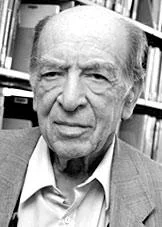
Professor Leonid Hurwicz was awarded the Nobel Prize in Economic Sciences in 2007, jointly with Eric Maskin and Roger Myerson for having laid the foundations of mechanism design theory.
Mechanism design theory was initiated by Leonid Hurwicz and further developed by Eric Maskin and Roger Myerson, has greatly enhanced our understanding of the properties of optimal allocation mechanisms in such situations, accounting for individuals' incentives and private information. The theory allows us to distinguish situations in which markets work well from those in which they do not. It has helped economists identify efficient trading mechanisms, regulation schemes and voting procedures. Today, mechanism design theory plays a central role in many areas of economics and parts of political science.
Leonid Hurwicz was Regents' Professor of Economics (Emeritus) at the University of Minnesota. He was among the first economists to recognise the value of game theory and is a pioneer in its application.
Hurwicz studied for a PhD at LSE in 1938, entitled "The Currency Devaluation with Special Reference to the Experience of the Gold Bloc Countries". His studies were interrupted by the war in the summer of 1939, after which he studied for a while at the Graduate Institute of International Studies in Geneva before moving to the United States in 1940.
2001: George Akerlof
Nobel Prize in Economic Sciences (jointly)
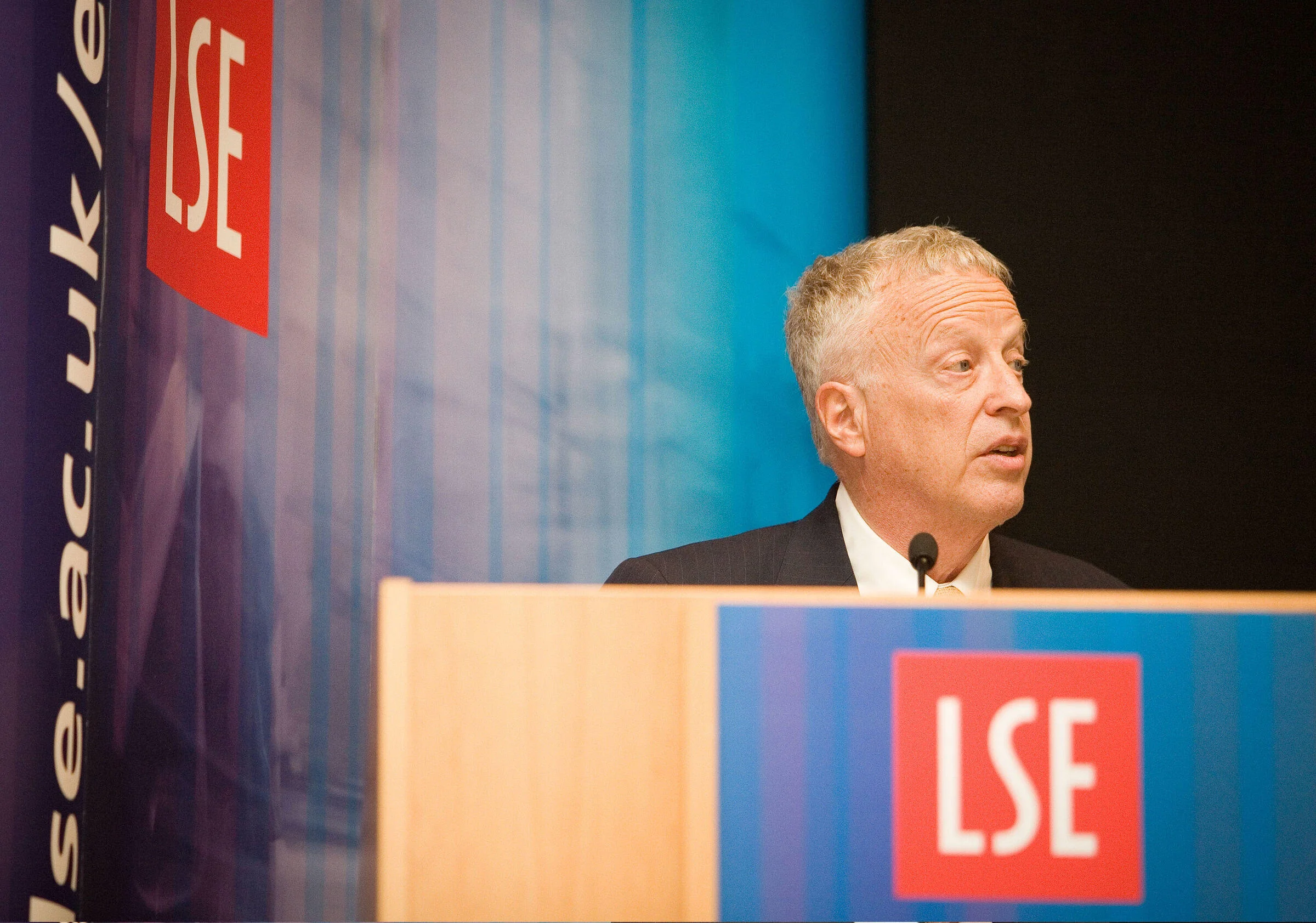
George Akerlof was awarded the Nobel Prize in Economic Sciences in 2001, jointly with A Michael Spence and Joseph Stiglitz, for their analyses of markets with asymmetric information.
The award came from Akerlof's work demonstrating how a market where sellers have more information than buyers about product quality can contract into an adverse selection of low-quality produces.
His pioneering contribution has shown how asymmetric information of borrowers and lenders may explain skyrocketing borrowing rates of local Third World markets. He has also dealt with the difficulties for the elderly to find individual medical insurance and with labour-market discrimination of minorities.
George Akerlof was Cassel Professor with respect to money and banking at LSE from 1978 to 1980.
1999: Robert Mundell
Nobel Prize in Economic Sciences
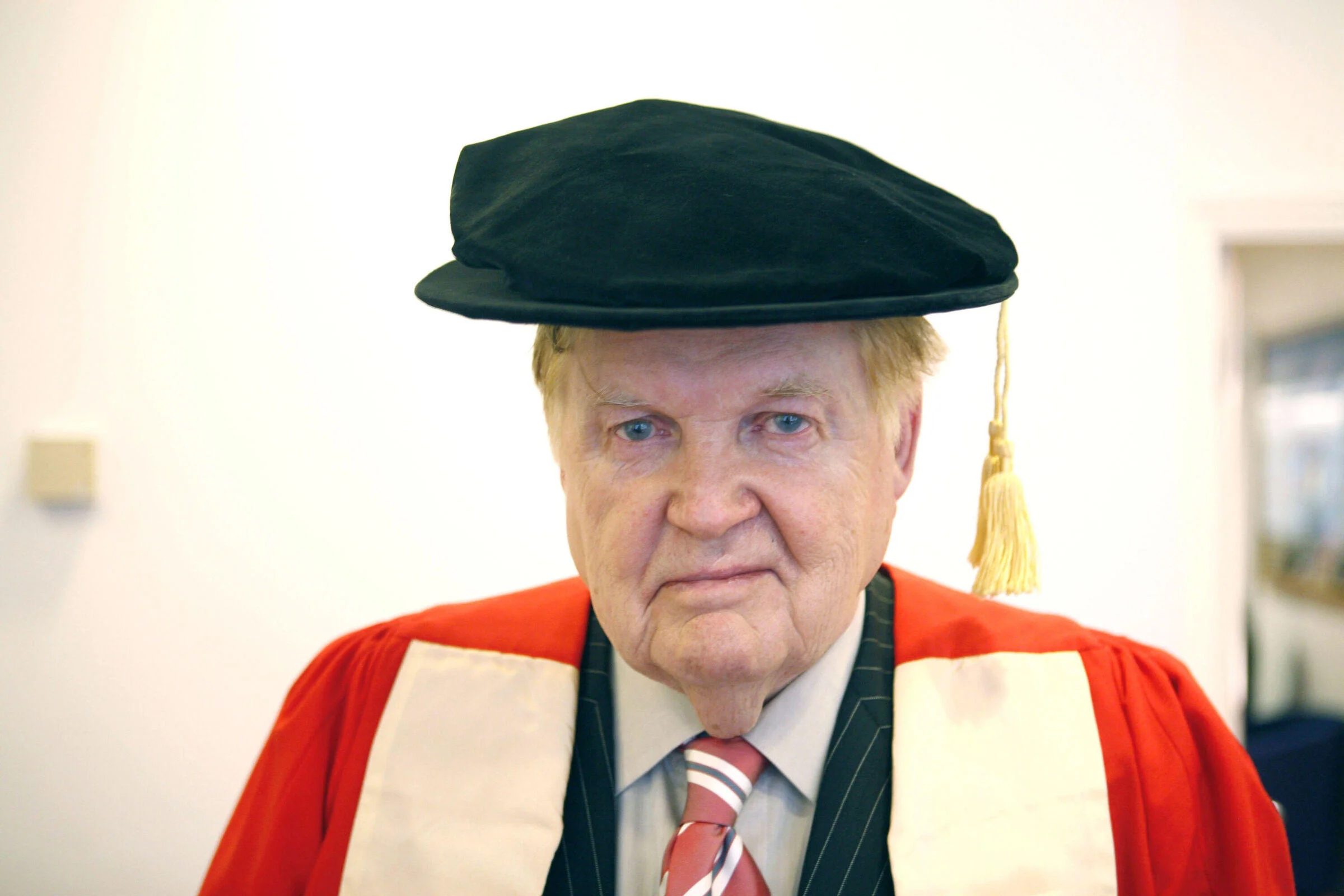
Robert Mundell received the Nobel Prize in Economic Sciences award in 1999 for his analysis of monetary and fiscal policy under different exchange rate regimes and his analysis or optimum currency areas.
An LSE alumnus from 1956, Robert Mundell is regarded as a pioneer of the idea of a common European currency and of the theory of optimum currency areas. He was also a pioneer of the theory of inflation and interest and growth, the monetary approach to the balance of payments, and the co-founder of supply-side economics. He has written extensively on the history of the international monetary system.
1998: Amartya Sen
Nobel Prize in Economic Sciences
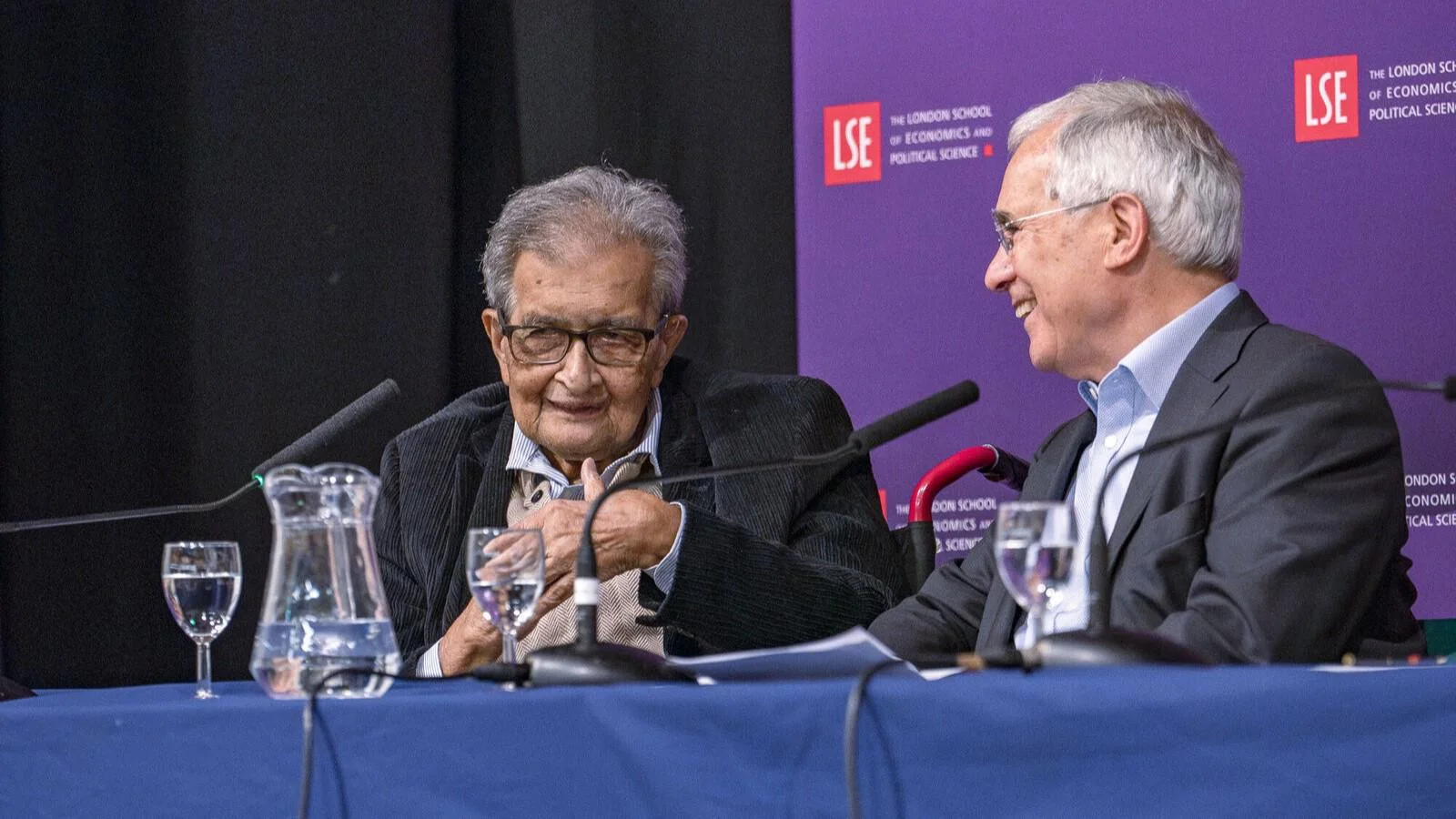
Amartya Sen received the Nobel Prize in Economic Sciences in 1998 for his contributions to welfare economics, restoring an ethical dimension to economics. He was professor of economics at LSE from 1971 to 1977, and he continued to teach part-time at the School from 1978 to 1982.
His work produced a new understanding of the catastrophes that plague society's poorest people and helps to explain the economic mechanisms underlying famines and poverty. He is best known for his book Poverty and Famine: an essay on entitlement and deprivation.
1991: Ronald Coase
Nobel Prize in Economic Sciences

Ronald Coase received the Nobel Prize for Economic Sciences in 1991 for his discovery and clarification of the significance of transaction costs and property rights for the institutional structure and functioning of the economy.
He studied for the Bachelor of Commerce degree at LSE from 1929 to 1932 and was a member of the LSE staff from 1935 to 1951. LSE's Department of Economics and Economica journal now co-host the bi-annual Economica-Coase lecture series.
He published The Nature of the Firm, a new concept of economic analysis, transaction costs, and the reasons for why firms exist. This article, together with The Problem of Social Cost (1961), made the breakthrough in economic science that led to his Nobel Prize.
1990: Merton Miller
Nobel Prize in Economic Sciences
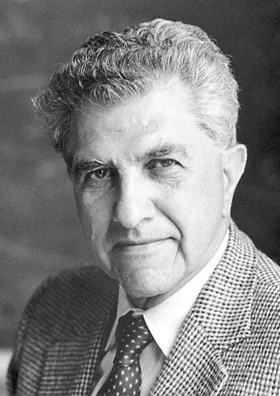
Merton Miller received the Nobel Prize in Economic Sciences (jointly) in 1990 for pioneering work in the theory of financial economics.
His first academic appointment after graduation was at LSE as an assistant lecturer in American economic history in 1952 to 1953.
Miller's early work was focused on corporate finance, but after his appointment to the Chicago Board of Trade in the early 1980s his research concentrated on economics and regulation within the financial services industry, especially in the area of securities and options exchanges.
1979: Sir Arthur Lewis
Nobel Prize in Economic Sciences (jointly)
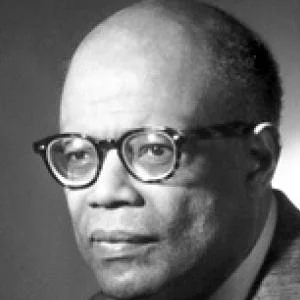
Sir Arthur Lewis received the Nobel Prize in Economic Sciences (jointly) in 1979 for pioneering research into economic development research with particular consideration of the problems of developing countries. Sir Arthur Lewis was a student at LSE from 1934 to 1937, and a member of staff from 1938 to 1948.
After leaving school in St Lucia at 14, he went to work and then won a scholarship to study at LSE. He was UN economic adviser to the prime minister of Ghana, and deputy managing director of the UN Special Fund. He also set up the Caribbean Development Bank.
1977: James Meade
Nobel Prize in Economic Sciences (jointly)
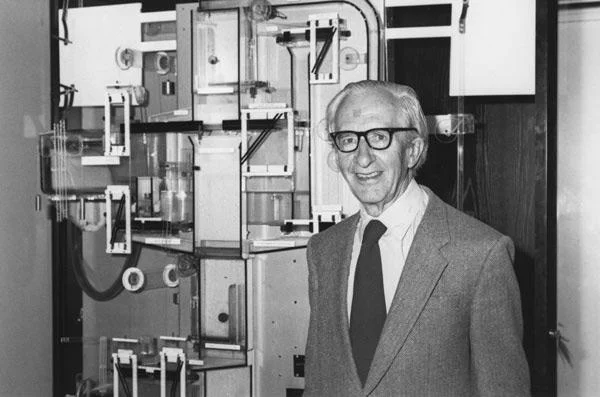
James Meade received the Nobel Prize in Economic Sciences (jointly) in 1977 for a path-breaking contribution to the theory of international trade and international capital movements.
Meade taught at LSE from 1947 to 1957 and was a professor of commerce concentrating on international trade. It was during his ten years at LSE that he wrote The Theory of International Economic Policy, published as two books: The Balance of Payments and Trade and Welfare.
The research applied economic welfare theory to international transactions, and provided the foundation on which he subsequently won the Nobel Prize.
1974: Friedrich Hayek
Nobel Prize in Economic Sciences (jointly)
Friedrich Hayek received the Nobel Prize in Economic Sciences (jointly) in 1974 for his pioneering work in the theory of money and economic fluctuations and for a penetrating analysis of the interdependence of economic, social and institutional phenomena.
He lectured at LSE from 1931 to 1950 and was Professor of Economic Science and Statistics. He has been described as the 20th century's leading philosopher of liberty.
Hayek found international fame with the publication of The Road to Serfdom in 1944, an account of how democratic socialism can be subverted to totalitarianism. He developed the idea of an international society of liberal intellectuals "to work out the principles which would secure the preservation of society". His idea came to life with the foundation of the Mont Pèlerin Society, which Hayek considered was one of his greatest achievements.

1972: Sir John Hicks
Nobel Prize in Economic Sciences (jointly)
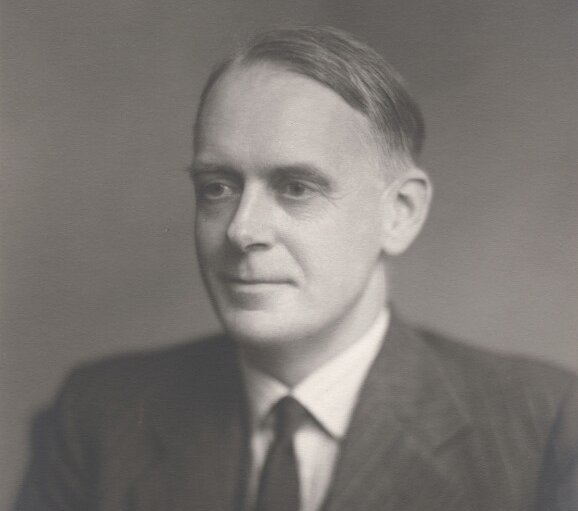
Sir John Hicks received the Nobel Prize in Economic Sciences (jointly) in 1972 for his pioneering contribution to general economic equilibrium theory and welfare theory.
He taught at LSE from 1926 to 1935, and his most well-known work is Value and Capital, written while he was at LSE and published in 1939. He was married to LSE economist Ursula Hicks.
By being deeply anchored in theories of the behaviour of consumers and of entrepreneurs, John Hicks' model offered far better possibilities to study the consequences of changes in externally given variables than earlier models in this field, and Hicks succeeded in formulating a number of theorems. He donated the Nobel Prize to the School's Library Appeal in 1973.
1959: Lord Noel-Baker
Nobel Peace Prize
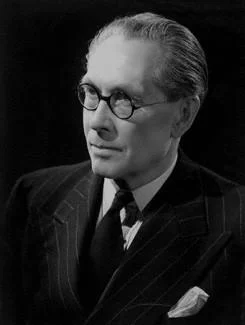
Lord Noel-Baker was awarded the Nobel Peace Prize in 1959 for his lifelong dedication to the cause of disarmament and international peace, and in particular for his book The Arms Race.
He was the first Sir Ernest Cassel Professor of International Relations at LSE in 1924 and one of the first professors in this subject anywhere in the world. He was also an athlete, competing in the Olympic Games several times, including captaining the British team in 1924.
On leaving LSE, Philip Noel-Baker pursued a career in politics, and was a member of parliament from 1929 to 1931 and 1936 to 1970. During the Second World War he was parliamentary secretary of the Ministry of War Transport. He held several posts in Atlee's post-war administration and joined the Cabinet as secretary of state for commonwealth relations in 1947.
1950: Ralph Bunche
Nobel Peace Prize
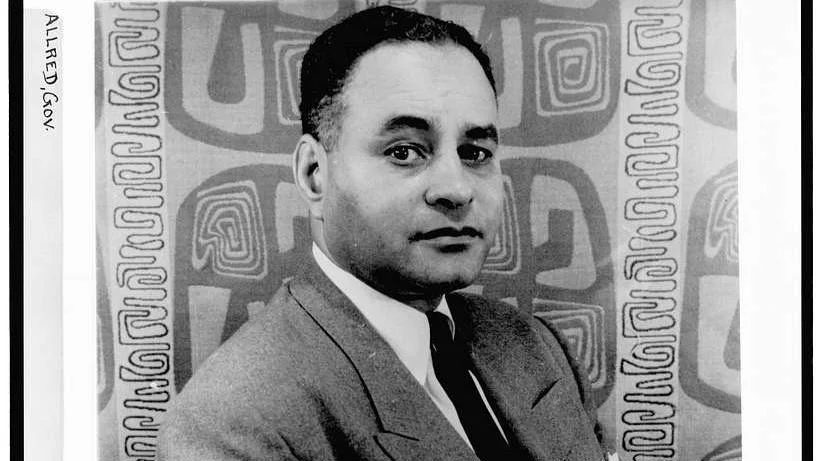
Ralph Bunche was awarded the Nobel Peace Prize in 1950 for his mediation in bringing peace to Palestine, as the UN mediator during the Arab-Israeli peace negotiations.
From 1936 to 1938, on a Social Science Research Council fellowship, Ralph Bunche conducted postdoctoral research in anthropology at LSE, (and at Northwestern University and Capetown University), and was the first black American to gain a PhD in political science from an American university.
An active campaigner for civil rights in America, he received the Medal of Freedom, America's highest civilian honour, from President Kennedy in 1963.
1950: Bertrand Russell
Nobel Prize in Literature

Bertrand Russell received the Nobel Prize in Literature in 1950 in recognition of his varied and significant writings in which he championed humanitarian ideals and freedom of thought.
He was one of the spiritual and financial founders of LSE, and his involvement in the early life of the School helped to define its ethos. From 1895 to 1896 he taught German social democracy, the theme of his first book. From 1937 to 1938 he lectured on the science of power. A mathematician, philosopher and public figure, his influence was felt around the globe.
His Principia Mathematica was a turning point in logic and mathematics, and his History of Western Philosophy was a best seller that brought philosophy to a popular audience.
1925: George Bernard Shaw
Nobel Prize in Literature

George Bernard Shaw received the Nobel Prize in Literature in 1925 for his work. His plays include Man and Superman, Heartbreak House and Pygmalion, subsequently turned into the musical My Fair Lady.
He was one of LSE's founders and also a founder and devoted member of the Fabian Society. He was married to Charlotte Shaw, one of LSE's early benefactors.
A great figure of the time, noted for his satire and verbal artistry, his reputation stems from his qualities as a playwright and the "Shavian" style and themes he developed in his work.